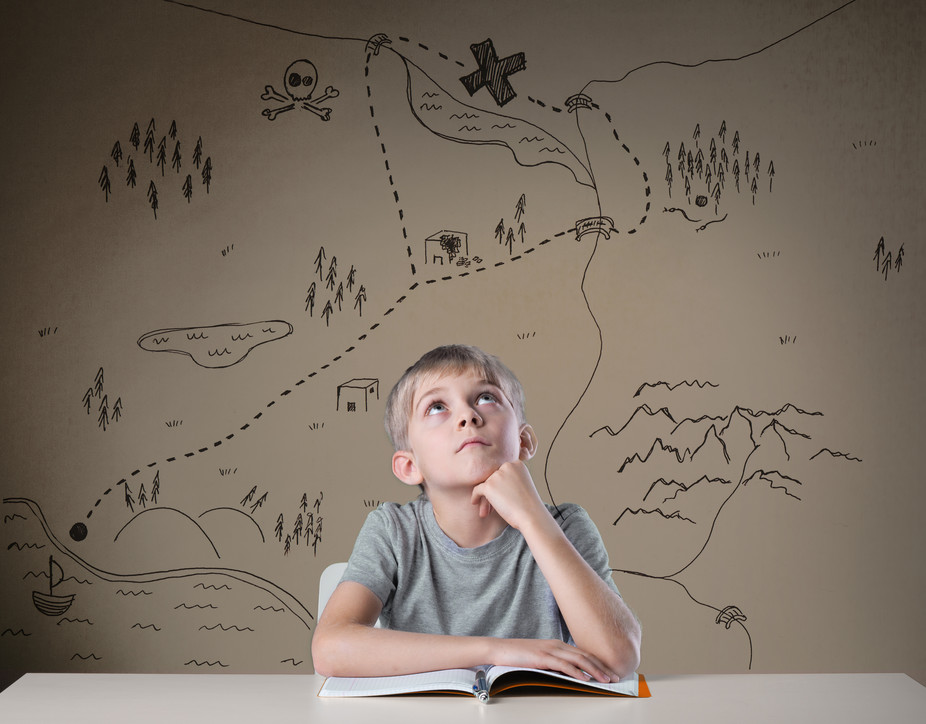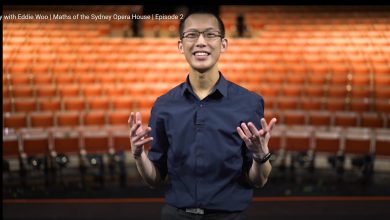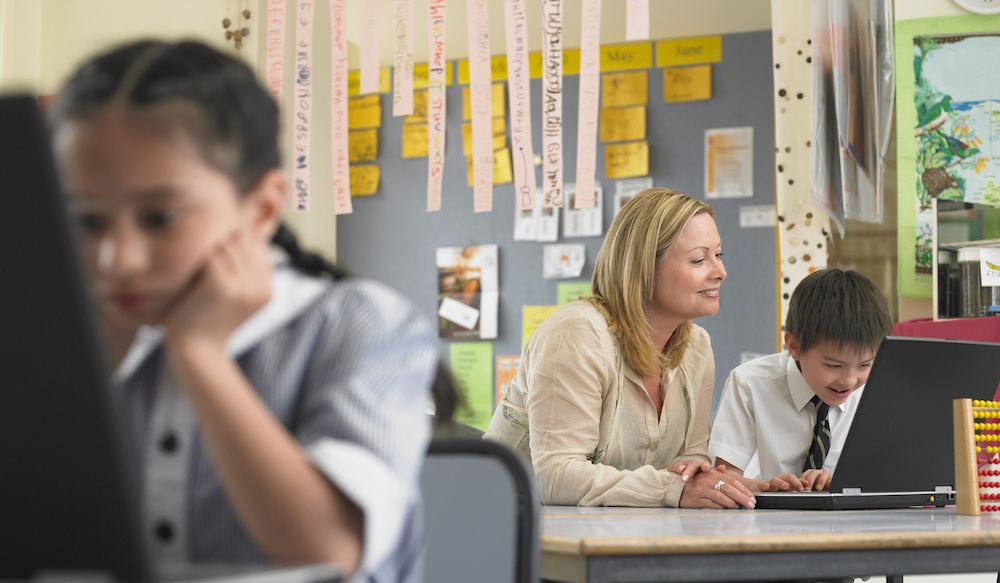Musicals and theatre: Bringing the world to life
Theatre productions and school musicals are more than performances—they are opportunities for students to develop confidence, creativity, and much more.
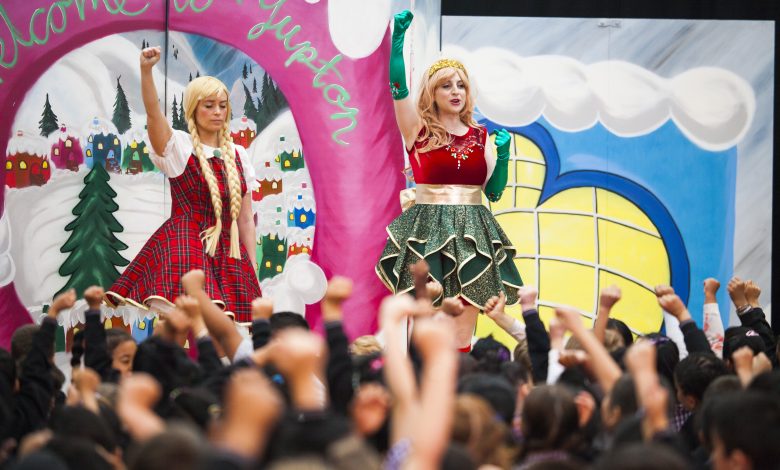
Whether your students are staging a production or watching one, the learning outcomes are manifold.
A 2018 study from the University of Arkansas found students that watched live theatre performances had improved outcomes in tolerance and content knowledge, and had a better understanding of the plot and vocabulary. Students also demonstrated improved social perspective taking. The study’s authors hypothesise that because theatre provides students with a window to a broader world, students then increase their understanding and acceptance of that broader world. Notably, the study found that watching a movie did not deliver the same learning outcomes as a live production.
Read the latest print edition of School News HERE
For students involved in school productions, results of a study published in 2012 indicated that acting—which requires students to step into another person’s shoes—leads to growth in empathy and theory of mind, that is, the understanding that other people’s beliefs, intentions, emotions and thoughts may be different to your own. Actors must learn to reflect on what others may be thinking and feeling, and mirror others’ emotions. This in turn may help students improve empathy and understanding, similar to viewing a live theatre performance.
Planning your production
Student engagement is fundamental to the success of any school endeavour. When choosing your production, think about the type of show that would get your students excited.
If your production will be a ticketed event, choosing a play or musical with a large cast will help to boost audience numbers.
The Schools Music License covers some aspects of live performance, however in most cases, to perform an entire musical, a school will need permission form the copyright owner of the musical. Changes to the script are, in general, prohibited without permission. There are also regulations around when you are permitted to charge admission and advertise the production to members of the general public.
Staging your production
The show can’t go on without a place to perform. Portable staging can be added to your existing stage to extend the area, used when your school doesn’t have a fixed stage, or set up outdoors to move your production outside.
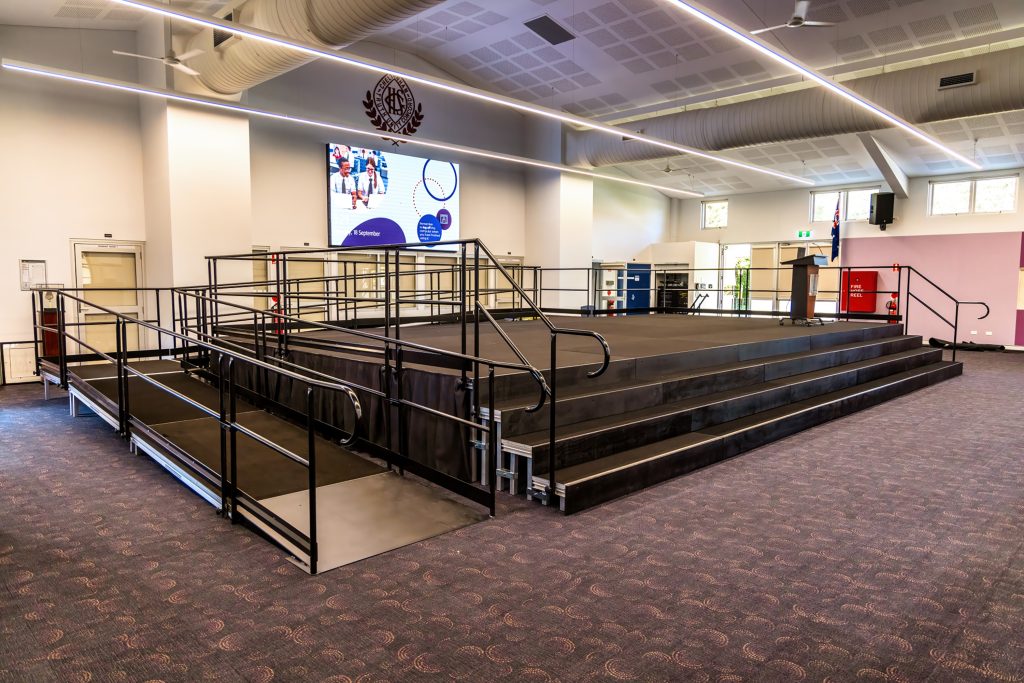
Ron Sangster from Select Staging Concepts said portable staging provides many benefits, and is a popular choice for school events, performances and presentations. “Portable staging is flexible and versatile, and can be easily reconfigured to suit different event types, venues, and performance requirements. Different sizes, heights and configurations are available, making them easy to adapt. Portable stages are also easy to setup and takedown, and can be used both indoors and outdoors.”
Mr Sangster stressed that schools should look to purchase from a reputable, Australian supplier, with Australian made products, to ensure staging is well built and will stand the test of time. “With skirting, carpeting, and customisable finishes, portable stages can provide a polished, professional look for any event.
“Importantly, portable stages can be equipped with ramps or lifts, making them compliant with DDA regulations and ensuring accessibility for all,” Mr Sangster said. “Guardrails, skirting, and non-slip surfaces can all be added to provide safety for performers and speakers.
“Stages can be designed with built-in cable management for microphones, speakers and LED lighting. Additional elements like acoustic panels can be added for sound-sensitive environments.
“To further enhance your school performance, Australian stage manufacturers have several temporary tiered seating options available to improve audience viewing and increase seating capacity in performance spaces. These solutions range from simple risers to fully modular grandstand systems.”
Kevin from Transtage said when engineered correctly, portable stages are built with storage efficiency and mobility in mind. “While they are strong and robust enough to support performances and events, they remain lightweight and compact, making them easy to transport, set up, and store—even in limited spaces. Unlike traditional permanent stages, portable solutions eliminate the need for costly and complex installations.
“Over the past few decades, portable stage designs have continuously evolved, becoming lighter, stronger, and easier to set up. Many of the challenges that previously discouraged schools from purchasing their own staging—such as high costs, storage concerns, and setup difficulties—have been significantly reduced or eliminated.
“By investing in a school-owned stage, institutions gain greater flexibility, setting up whenever and wherever needed, without the recurring expense of hiring. Additionally, portable stages are not limited to indoor settings; they can be used both indoors and outdoors, making them a versatile asset for various school events.
“With these advancements, owning a portable stage is now a practical and cost-effective solution for schools, empowering them to take full control of their event staging needs.”
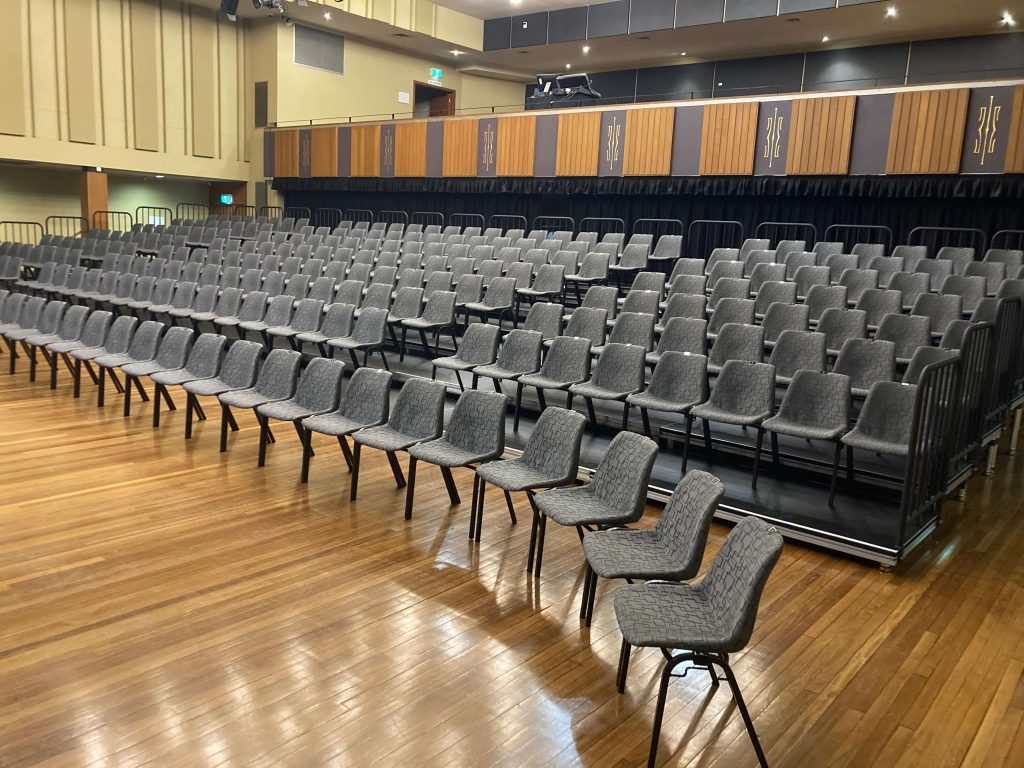
Bringing the theatre to you
A trip to the theatre to see a live production makes for an exciting excursion. If you can’t make it off-site, many theatre productions can come to you.
Ben Jackson from Alpha Shows said that live performances have a unique ability to bridge the gap between knowledge and experience, turning abstract concepts into felt, lived moments. “When students witness a story unfold in real-time, they aren’t just absorbing information; they’re actively engaging with emotions, relationships, and ideas in a way that deepens understanding and retention.
“A school production or live theatre performance isn’t just entertainment, it’s an experiential learning tool,” Mr Jackson said. “Whether reinforcing historical and mythical events, exploring literary themes, or visualising scientific concepts, theatre embodies the curriculum. When students see characters struggle, grow, and triumph, these moments imprint on their memory far more effectively than passive learning. As research in embodied cognition suggests, we remember what we physically and emotionally engage with.
“When students are fully immersed in a live theatrical experience, something profound happens at the neurological level. Their brain isn’t just watching, it’s mirroring, feeling, and encoding that experience as if it were their own. This is how real learning occurs, as we say, in a ‘peak state’. It’s why live theatre can literally shift consciousness—because when you feel something so deeply, your perspective changes. Your core beliefs change. And when your beliefs and perspectives change, your entire reality shifts to a higher vibration.
“Moreover, live performances create a shared experience, fostering a sense of community and open discussion—something increasingly vital in today’s digital world. Unlike screens, which isolate, theatre unites students in a collective moment of inspiration and transformation.”



